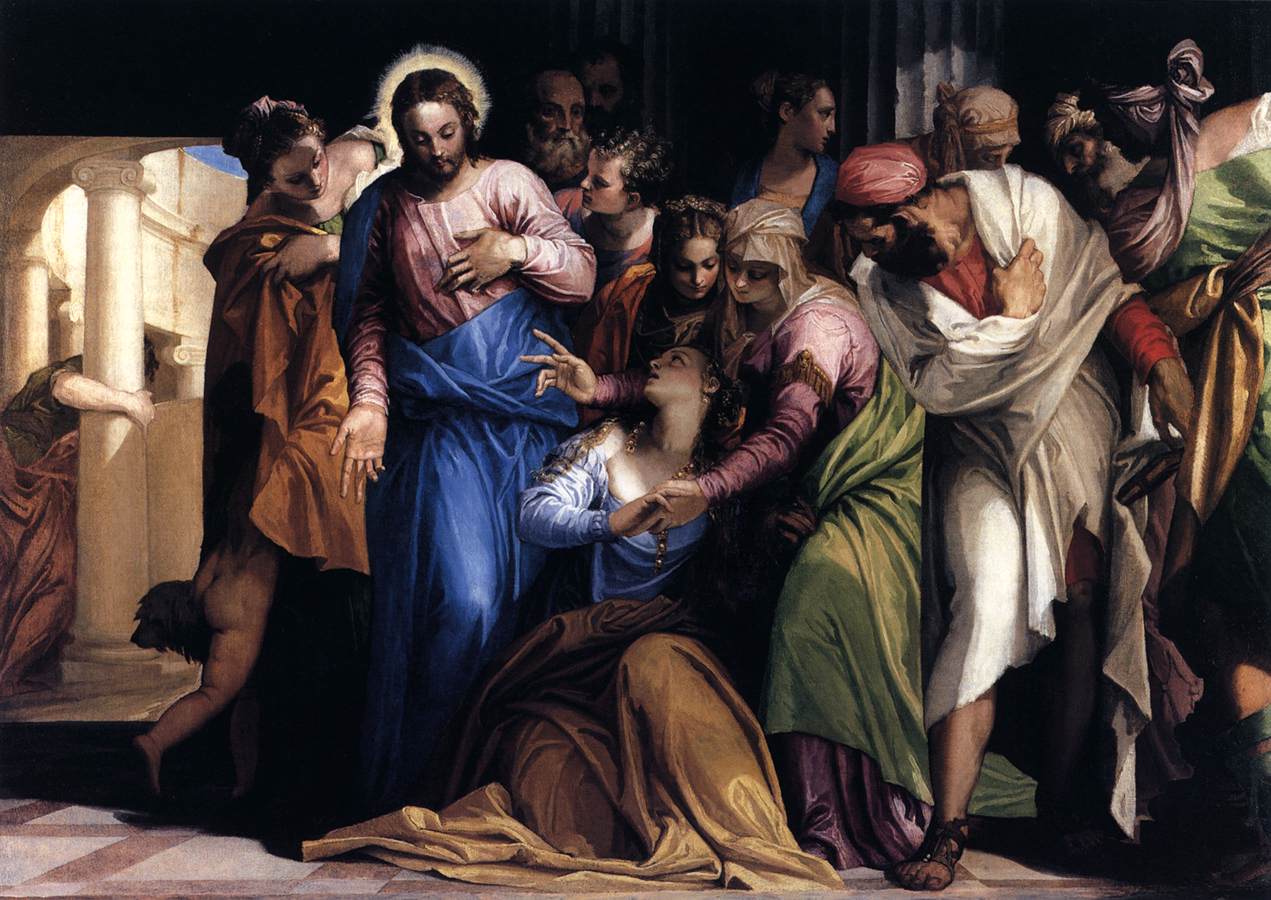Description
The painting "Conversion of Mary Magdalene" by artist Paolo Veronese is a masterpiece that captures the spiritual transformation of Mary Magdalene from a life of sin to religious devotion. This painting, which has an original size of 118 x 164 cm, presents a series of interesting aspects that make it a unique piece in the history of art.
Veronese's artistic style is characterized by his ability to represent human figures with great naturalness and realism. In "Conversion of Mary Magdalene", this is evidenced in the way she portrays Mary Magdalene, whose facial expression reflects deep emotion and inner transformation. In addition, Veronese uses a loose and fluid brushwork technique, which allows him to create a sense of movement and life in the work.
The composition of the painting is another highlight. Veronese uses a triangular arrangement to arrange the figures in the work, with Mary Magdalene in the center, surrounded by other religious figures. This composition creates a visual balance and directs the viewer's attention towards the main figure. In addition, Veronese uses the chiaroscuro technique to highlight the figure of Mary Magdalene, illuminating her with a soft light that contrasts with the dark background.
Color also plays an important role in this painting. Veronese uses a rich and vibrant color palette, with warm, luminous tones that convey a sense of spirituality and redemption. The predominant golden and reddish tones in the work symbolize divinity and religious passion, while the blue and green tones in the background evoke a mystical and heavenly atmosphere.
As for the history of the painting, "Conversion of Mary Magdalene" was commissioned by a religious congregation in Venice in the 16th century. The work is based on the biblical passage of the conversion of Mary Magdalene, who, according to Christian tradition, was a sinner who repented and became a devoted follower of Jesus. Veronese portrays this pivotal moment in the life of Mary Magdalene, capturing her expression of wonder and gratitude towards the divinity.
Although not widely known, an interesting aspect of this painting is that Veronese included symbolic details that refer to the life of Mary Magdalene. For example, in the foreground of the work, a broken perfume jar can be seen, representing Mary Magdalene's sinful past and her renouncing her old life. Additionally, Veronese includes a snake coiled around a tree in the background, symbolizing the temptation and evil that Mary Magdalene has overcome.
In short, "Conversion of Mary Magdalene" by Paolo Veronese is a fascinating painting that stands out for its artistic style, composition, color, and the history it depicts. This masterpiece captures the spiritual transformation of Mary Magdalene and conveys a sense of devotion and redemption through its visual representation.

